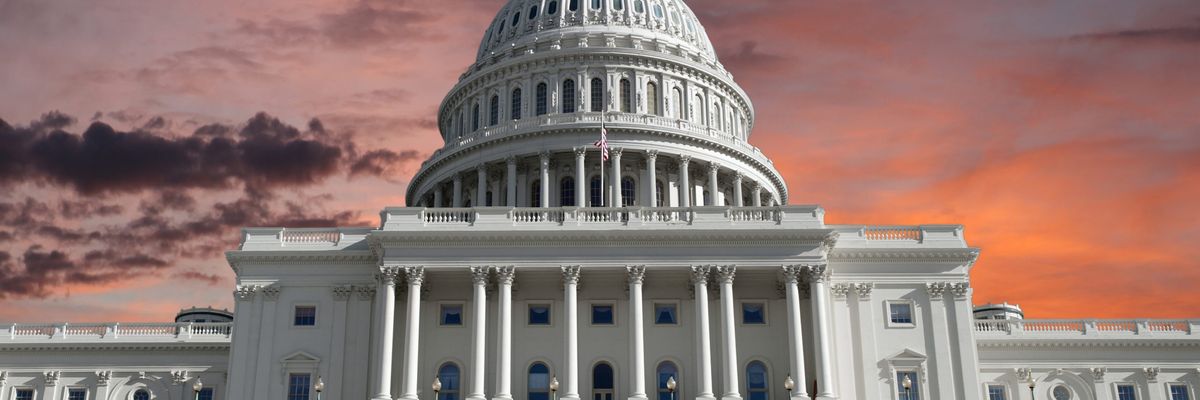Amid Russia’s escalation in Ukraine, a bipartisan group of 43 Members of Congress sent a letter to the Biden Administration Tuesday to “reassert the war powers vested in Congress under the U.S. Constitution and the War Powers Resolution of 1973.”
Though the Biden Administration has made clear it won't be sending U.S. combat troops to Ukraine, the intent of the letter is to nip any effort to change this policy without Congressional authorization in the bud.
The authors, Peter DeFazio (D-Ore.) and Warren Davidson (R-Ohio), write that “if the ongoing situation compels you to introduce the brave men and women of our military into Ukraine, their lives would inherently be put at risk if Russia chooses to invade. Therefore we ask that your decisions comport with the Constitution and our nation’s laws by consulting with Congress to receive authorization before any such deployment.”
On February 12, Defense Secretary Lloyd Austin ordered 160 Florida National Guardsmen out of Ukraine — the only known American troops still there. If the Biden Administration sends any U.S. military personnel back into the country, the lawmakers warn that Congress “stands ready to deliberate over the potentially monumental implications of such scenarios.”
The lawmakers cite the War Powers Resolution, which would “clearly require congressional authorization before the President may command U.S. Armed Forces to engage in hostilities.” The authors note this would include preemptive strikes, which had raised concerns among some of the letter's signatories after Biden’s use of airstrikes in Syria a year ago. Though previous attempts to rein in the Executive’s war powers have been hamstrung, support for a re-assertion of congressional authorities has grown. The wide-ranging list of signatories includes representatives Peter Meijer (R-Mich), Ilhan Omar (D-Minn.), Thomas Massie (R-Ky.), and Barbara Lee (D-Calif.), a long-time advocate of war powers reform.
Separately, DeFazio told Politico that he is calling on President Biden to “ignore the warmongers” already calling for confrontation with Russia. This isn’t hypothetical, either — the same day the letter was sent, former National Security Advisor John Bolton gave a television appearance arguing that Biden must “swiftly take aggressive action against Putin.”
The letter concludes by affirming that “the American people, through their representatives in Congress, deserve to have a say before U.S. troops are placed in harm’s way or the U.S. becomes involved in yet another conflict.” Only 13 percent of Americans polled think that sending soldiers to Ukraine to fight Russian soldiers is a good idea. Opposition to direct military engagement reflects the will of the American people.
















